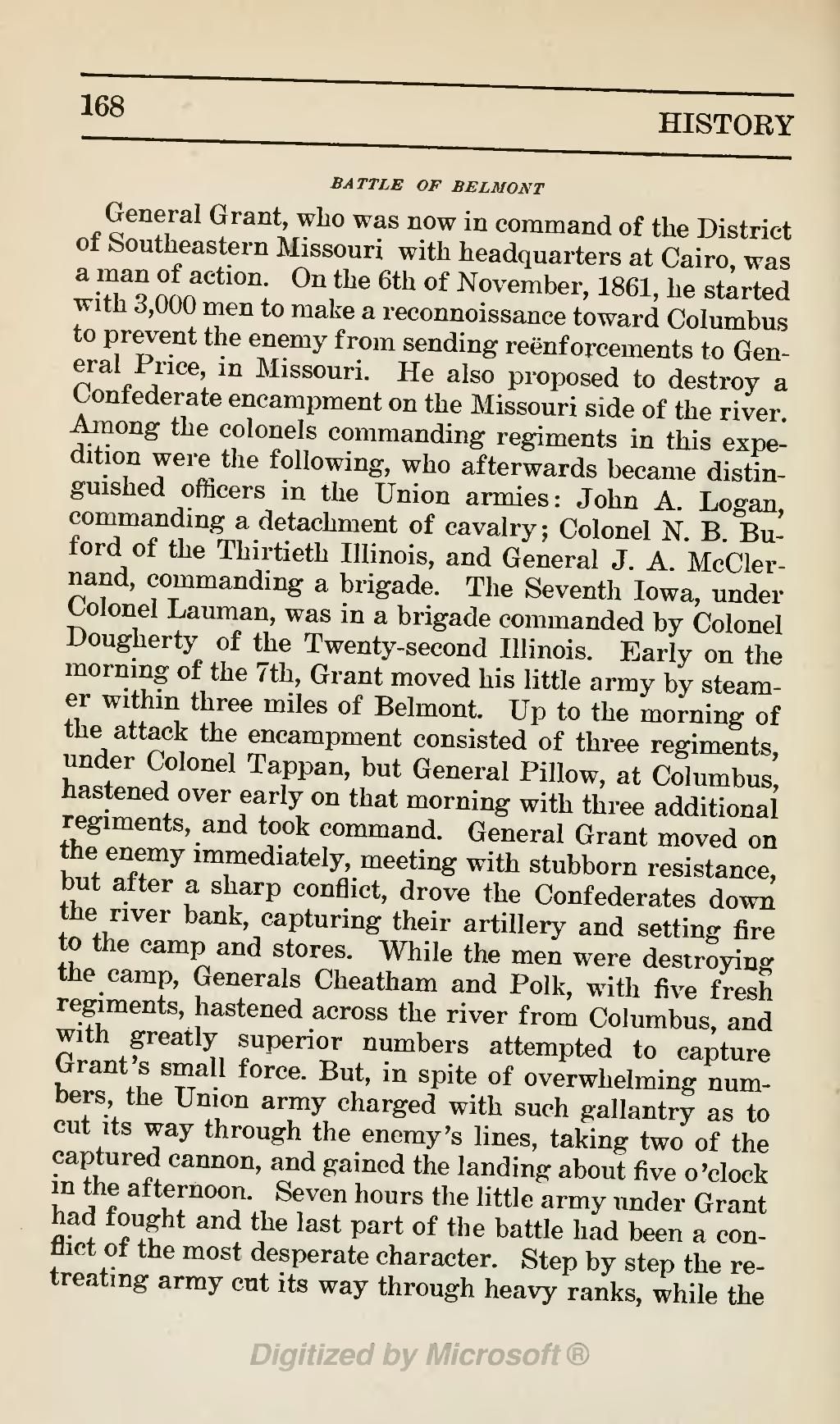BATTLE OF BELMONT
General Grant, who was now in command of the District of Southeastern Missouri with headquarters at Cairo, was a man of action. On the 6th of November, 1861, he started with 3,000 men to make a reconnaissance toward Columbus to prevent the enemy from sending reënforcements to General Price, in Missouri. He also proposed to destroy a Confederate encampment on the Missouri side of the river. Among the colonels commanding regiments in this expedition were the following, who afterwards became distinguished officers in the Union armies: John A. Logan, commanding a detachment of cavalry; Colonel N. B. Buford of the Thirtieth Illinois, and General J. A. McClernand, commanding a brigade. The Seventh Iowa, under Colonel Lauman, was in a brigade commanded by Colonel Dougherty of the Twenty-second Illinois. Early on the morning of the 7th, Grant moved his little army by steamer within three miles of Belmont. Up to the morning of the attack the encampment consisted of three additional regiments, under Colonel Tappan, but General Pillow, at Columbus, hastened over early on that morning with three additional regiments, and took command. General Grant moved on the enemy immediately, meeting with stubborn resistance, but after a sharp conflict, drove the Confederates down the river bank, capturing their artillery and setting fire to the camp and stores. While the men were destroying the camp, Generals Cheatham and Polk, with five fresh regiments, hastened across the river from Columbus, and with greatly superior numbers attempted to capture Grant’s small force. But, in spite of overwhelming numbers, the Union army charged with such gallantry as to cut its way through the enemy’s lines, taking two of the captured cannon, and gained the landing about five o’clock in the afternoon. Seven hours the little army under Grant had fought and the last part of the battle had been a conflict of the most desperate character. Step by step the retreating army cut its way through heavy ranks, while the
